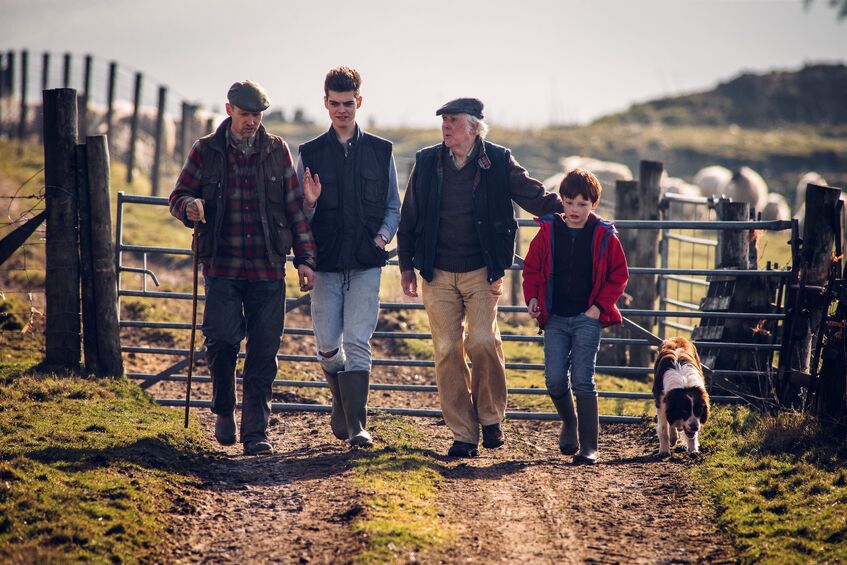Inheritance Tax Shake-Up: Why Farmers and Businesses Must Act Now to Protect their Legacy’

Rod MacLean, Private Client Partner at Wright, Johnston & Mackenzie, gives a post-budget analysis on changes to Inheritance Tax, and what it means for business owners and the agricultural community amid a call for early planning.
This year’s Autumn Budget has stirred up rampant discussion, particularly in farming circles, about inheritance tax (IHT) changes and their proposed impact on agricultural and business property reliefs.
Recent protests by farmers have made headline news and there is a movement to persuade the government to change tack. But at this stage that appears unlikely although some tinkering with the changes is possible.
We likely won’t have full clarity on the rules for another year or two as the government enters into a period of consultation with the actual changes in their final form come into force in April 2026.
That said, the direction of travel is clear, and it’s time for everyone — not just farmers — to take note and prepare.
The new government’s stated intention that there would be no changes to income tax meant that the focus shifted to capital taxes. The increase in the general Capital Gains Tax (CGT) rate aligns it with the existing CGT rate for residential property. While not as steep as many had feared, these increases signal a growing emphasis on taxing capital wealth.
Inheritance Tax changes are where the Budget has made a more significant impact. Agricultural Property Relief (APR) and Business Property Relief (BPR) — previously cornerstones of tax-efficient succession planning — are set to face significant limits.
Currently, most farms and businesses qualify for 100% IHT relief through either APR or BPR (or both) on an unlimited value. This has long been a vital safeguard for family enterprises, enabling assets to pass from one generation to the next without crippling tax bills. The proposed changes, however, cap the combined reliefs at £1 million of qualifying assets. Beyond this threshold, relief drops to 50 per cent.
In practical terms, this means that, on death, business / farming assets with a value over £1 million will face a 20 per cent tax rate rather than the standard 40 per cent.
However, other allowances mean a couple who are married or in a civil partnership could pass on a farm or business worth as much as £3m without an IHT liability.
For farmers, land and assets are their livelihoods. While these assets often carry high market values, the income they generate can be modest, and they are crucial for food production and the rural economy. The National Farmers Union (NFU) estimates that up to 70,000 farms could be affected, although Government figures have suggested closer to 100 per year.
Regardless of the exact numbers, the impact could be a concern for individual families. Many fear these changes will force farm sales, breaking generational ties to the land and potentially leading to the demise of small and medium-sized agricultural businesses.
This means careful succession planning, lifetime gifting, and early valuations will become more critical than ever.
For those with assets over the £1 million threshold, strategies such as using trusts, exploring heritage reliefs, or diversifying assets may offer some mitigation.
If, as seems likely, there is a much greater incentive for business owners and farmers to transfer ownership during their lifetimes, families will need to weigh the emotional and practical implications of doing so. While these decisions can be difficult, they can also offer opportunities for younger generations to take the reins and inject fresh energy into the business.
There are some further changes to inheritance tax which will also have a significant impact. Firstly investments in the Alternative Investment Market which currently attract 100% BPR will be restricted to 50 per cent. Secondly there is a change to the treatment of “inherited” pension funds which were previously outwith the scope of IHT. They will now be treated as part of an estate for IHT purposes. This is a significant change which will also require careful planning. This change is to come into effect from 6 April 2027.
As the detail of the changes has still to be finalised and there will inevitably be changes, there will be a period of uncertainty, and careful planning is more important than ever. The farming and business communities will need time to digest these changes, and we, as advisers, must stay ahead of the evolving rules to guide our clients effectively.
For now, I would urge anyone who might be affected by these changes to start conversations early. Proactive planning is the best defence.
This article first appeared in Executive Magazine
The information contained in this newsletter is for general guidance only and represents our understanding of relevant law and practice as at December 2024. Wright, Johnston & Mackenzie LLP cannot be held responsible for any action taken or not taken in reliance upon the contents. Specific advice should be taken on any individual matter. Transmissions to or from our email system and calls to or from our offices may be monitored and/or recorded for regulatory purposes. Authorised and regulated by the Financial Conduct Authority. Registered office: 319 St Vincent Street, Glasgow, G2 5RZ. A limited liability partnership registered in Scotland, number SO 300336.




